calsfoundation@cals.org
Raymond Hoyt (Ray) Thornton Jr. (1928–2016)
Law professor Raymond (Ray) Hoyt Thornton Jr. was an Arkansas entrepreneur, lawyer, attorney general, U.S. representative, university president, and Arkansas Supreme Court justice. Thornton also played a key role in fashioning the articles of impeachment against President Richard Nixon concerning the Watergate cover-up.
Ray Thornton was born on July 16, 1928, in Conway (Faulkner County), one of two children of Raymond Thornton Sr. of Sheridan (Grant County) and Wilma Stephens Thornton of Prattsville (Grant County); his mother was the sister of noted business figures Witt Stephens and Jackson T. Stephens. His parents attended Arkansas State Teachers College (now the University of Central Arkansas) in Conway (Faulkner County) and eventually returned to Sheridan to live. Thornton’s father served as superintendent of schools for Grant County, and his mother taught at Sheridan. Thornton graduated from high school in 1945 at age sixteen and entered the University of Arkansas (UA) in Fayetteville (Washington County) where, at age eighteen, he won the Navy Holloway Program Scholarship to attend Yale University. There, he completed his BA in international relations and engineering in three years, graduating in 1950.
After postgraduate work at the University of Texas Law School and the Navy School of Engineering in Montgomery, California, Thornton served three years with the Pacific Fleet, two of them on the aircraft carrier USS Philippine Sea (CV-47) as top-secret control officer for the admiral in charge of naval operations, Carrier Task Force 77, during the Korean War. After the war, he served as navigation and electronics officer on the USS General A. E. Anderson (T-AP-111).
Following his military service, Thornton returned to Arkansas to complete his law degree at the University of Arkansas School of Law. In 1956, Thornton graduated and then married Betty Jo Mann of Sheridan, with whom he had three daughters. He was soon working in the legal department at Arkansas Louisiana Gas Company (Arkla). In 1963, Arkla approached Thornton and Ed Handy, another Arkla employee, about designing a practical “light weight, low cost, utility-type service vehicle.” The duo produced the “Handywagon,” as it was called, which had a fiberglass cab and two-cylinder air-cooled engine. Arkla ordered 100 units at $1,250 each, but a program to start this automobile’s production in Arkansas on a large scale was dropped due to costs.
In 1965, Thornton took on Southwestern Bell Telephone in an anti-trust suit. With its own technology and without seeking permission, Independent Allied Telephone (later Alltel) of Sheridan had upgraded its system to direct-dial; in response, Bell Telephone cut Allied off from its lines. Allied then sued Bell for anti-trust and monopoly actions. Thornton argued the case and won it for Allied.
In 1970, Thornton was elected as state attorney general on the Democratic Party ticket and served one term. He then won election to the U.S. House of Representatives for the Fourth Congressional District, serving three terms. He chaired the Subcommittee on Science, Research and Technology and served on the Recombinant DNA Advisory Committee.
Thornton also served on the House Judiciary Committee, which investigated the June 17, 1972, Watergate break-ins. In July 1974, six members of the committee met and began to draw up draft articles of impeachment. Thornton’s three articles indicted the president for abuse of power, obstruction of justice, and continuing to show contempt for Congress. The substance of Thornton’s draft was approved, and the articles were immediately submitted to the full Judiciary Committee, which, after some amending, passed article one—obstruction of justice—on July 27, 1974, and the other two articles—abuse of power and contempt of Congress—by July 30. With the “smoking gun” tape becoming public, as well as the upcoming vote in the House to accept the Judiciary Committee’s impeachment articles and his loss of congressional support, Nixon resigned on August 9.
In 1978, Thornton left his congressional seat to run for the U.S. Senate. After failing in that bid he returned to Arkansas in 1979 to serve as executive director of the Joint Educational Consortium of Ouachita Baptist University and Henderson State University. In 1980, he was chosen to be president of Arkansas State University (ASU) in Jonesboro (Craighead County). Thornton was still president of ASU when, in 1984, the president of UA suddenly resigned. Thornton was contacted and offered the position without a search; he accepted. While at UA, Thornton spearheaded the drive to preserve Old Main, the oldest campus building.
Thornton served as university president until 1990, when he left to make a successful run for U.S. representative again, this time from the Second Congressional District. He retired in 1997. During this term of service, Thornton was part of the 1995 U.S. Term Limits, Inc. v. Thornton case in which the U.S. Supreme Court overturned an effort by several states, including Arkansas, to put term limits on U.S. senators and representatives. Thornton again chaired the House Subcommittee on Science, Research, and Technology. His committee instituted the Experimental Program to Stimulate Competitive Research (EPSCOR) in order to spread government research money more evenly among state universities.
After leaving the House, Thornton was immediately elected to an eight-year term on the Arkansas Supreme Court, which he completed in 2005. After that, Thornton, who lived in Little Rock (Pulaski County) with his wife, served as the first Public Service Fellow for the University of Arkansas at Little Rock William H. Bowen School of Law. In 2009, he became the first chairman of the Arkansas Lottery Commission. In 2013, he donated his personal and professional papers to the University of Arkansas.
Thornton died on April 13, 2016.
For additional information:
“Arkla Building Compact Trucks.” Arkansas Democrat, February 3, 1965, p. 1.
Oral History Interview with Ray Thornton. Arkansas Supreme Court Historical Society. https://www.arcourts.gov/sites/default/files/oralhistories/THORNTON%20FINAL.pdf (accessed September 13, 2022).
Ray Thornton Papers. Special Collections. University of Arkansas Libraries, Fayetteville, Arkansas.
Teich, Albert, and Ray Thornton, eds. Science, Technology and the Issues of the Eighties. Boulder, CO: Westview Press, 1982.
Wagnon, Ted. “Ray Thornton.” Arkansas Lawyer (April 1977): 44.
Paul D. Haynie
Harding University



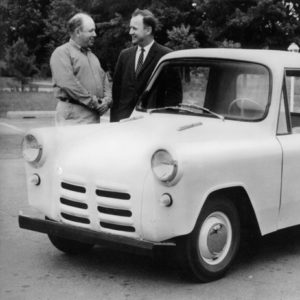
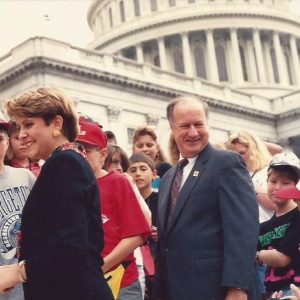
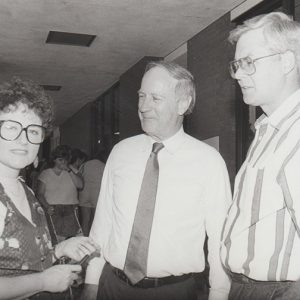
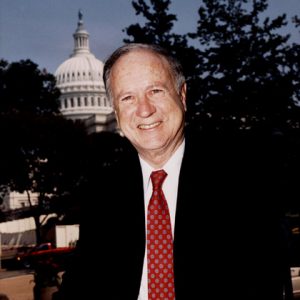
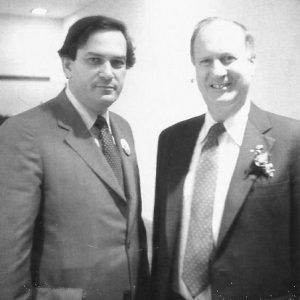
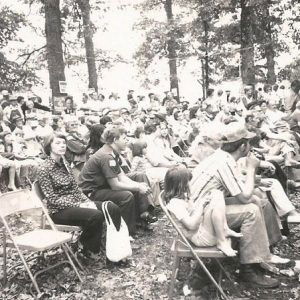

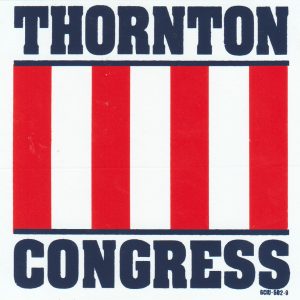
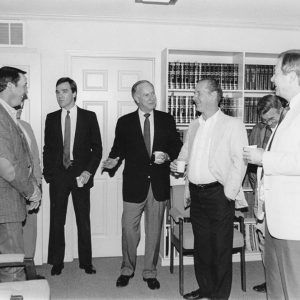




My father Ray Thornton worked hard for the people in Arkansas. He did so much more than he got credit for. He wasn’t one to “toot his own horn,” but he deserves more recognition than he received. I was a lucky girl to have him as a father!
My uncle was Evan Ulrey. Evan’s wife, my Aunt Betty, was Ray Thornton’s sister. [Their mother] Wilma Stephens Thornton [was the sister of] Jackson T. Stephens. Uncle Evan was a fine man. Hope Uncle Evan’s fine arts building is still named in his honor.
What a remarkable career. I was blessed to meet Dr. Thornton in the fall of 1982 when I enrolled at ASU in Jonesboro.